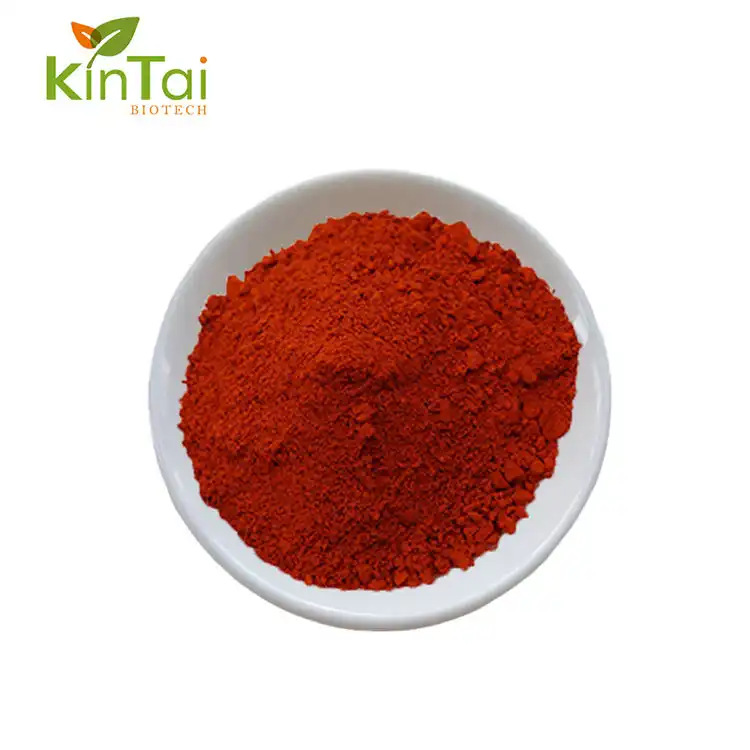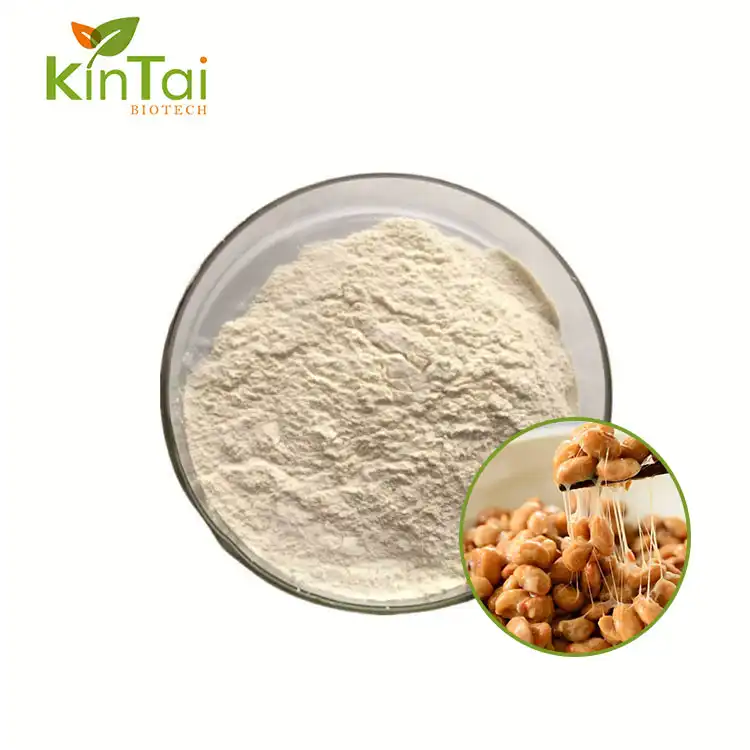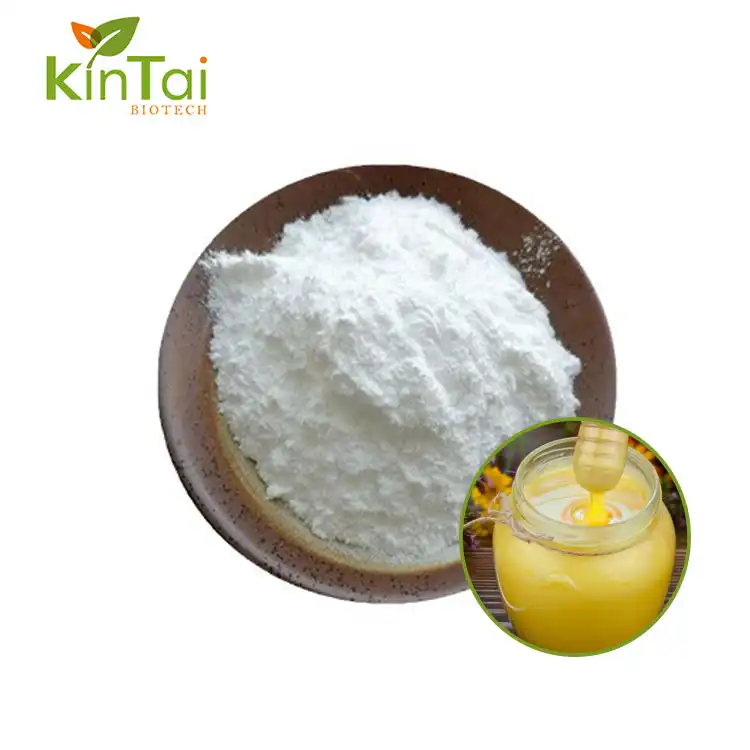How Does Yohimbine Extract Powder Work for Weight Loss?
2025-01-17 16:52:44
In the ever-evolving world of weight loss supplements, yohimbine extract powder has emerged as a intriguing option for individuals struggling to shed those last few pounds. Derived from the bark of the African yohimbe tree, this natural compound has gained significant attention in fitness and nutrition circles for its potential to support weight loss efforts. But how exactly does yohimbine extract powder work to help individuals achieve their body composition goals?

Can Yohimbine Extract Powder Target Stubborn Fat Effectively?
Fat loss is a complex physiological process, and anyone who has attempted to lose weight understands the frustration of stubborn fat deposits that seem resistant to traditional diet and exercise approaches. Yohimbine extract powder offers a unique mechanism of action that specifically targets these challenging fat storage areas, primarily focusing on alpha-2 adrenergic receptors located in adipose tissue.
The human body contains two primary types of adrenergic receptors in fat cells: alpha-2 and beta receptors. Alpha-2 receptors are typically associated with fat storage and inhibition of lipolysis, while beta receptors promote fat breakdown. Yohimbine's primary mechanism involves blocking alpha-2 adrenergic receptors, which creates a remarkable metabolic environment conducive to fat mobilization.
Research has demonstrated that yohimbine is particularly effective in targeting subcutaneous fat in areas traditionally difficult to reduce, such as the lower abdomen, love handles, and thigh regions. These areas are often characterized by high concentrations of alpha-2 receptors, which typically resist standard fat-burning processes. By selectively antagonizing these receptors, yohimbine extract powder enables more efficient fat mobilization and utilization.
Moreover, the compound's ability to enhance norepinephrine activity contributes to its fat-targeting capabilities. Norepinephrine is a critical neurotransmitter involved in lipolysis, the process of breaking down stored fat into free fatty acids that can be metabolized for energy. When yohimbine blocks alpha-2 receptors, it essentially removes the metabolic "brake" that prevents fat cells from releasing their stored energy.
Clinical studies have shown promising results, particularly for individuals with stubborn fat deposits that do not respond to conventional weight loss methods. Athletes and fitness enthusiasts have increasingly incorporated yohimbine extract powder into their nutrition strategies, especially during cutting phases or when attempting to reduce localized fat stores.

How Does Yohimbine Interact with Fat Metabolism in the Body?
Understanding the intricate metabolic interactions of yohimbine requires a deep dive into human physiological processes. The compound's interaction with the body's metabolic systems extends far beyond simple fat receptor manipulation, presenting a multi-faceted approach to weight management.
At the cellular level, yohimbine influences several key metabolic pathways. Its primary interaction occurs within the sympathetic nervous system, where it acts as an alpha-2 adrenergic receptor antagonist. This antagonistic action triggers a cascade of metabolic responses that ultimately enhance fat oxidation and energy expenditure.
The hypothalamic-pituitary-adrenal (HPA) axis plays a crucial role in this metabolic interaction. By modulating sympathetic nervous system activity, yohimbine extract powder can potentially increase resting metabolic rate and thermogenesis. Thermogenesis represents the body's heat production process, which is intrinsically linked to energy expenditure and fat metabolism.
Insulin sensitivity represents another critical aspect of yohimbine's metabolic interaction. Research suggests that the compound may help improve insulin sensitivity, which is fundamental to efficient glucose metabolism and fat storage regulation. By potentially enhancing insulin's effectiveness, yohimbine could help individuals manage blood sugar levels more effectively while simultaneously promoting fat utilization.
Hormonal balance also plays a significant role in yohimbine's metabolic interactions. The compound has been observed to influence testosterone levels and cortisol responses, which can indirectly impact body composition and metabolic efficiency. These hormonal modulations create a more favorable environment for fat loss and muscle preservation.
The mitochondrial network, often referred to as the body's cellular powerhouses, also responds to yohimbine's metabolic signaling. By potentially increasing mitochondrial activity and efficiency, the compound may enhance overall energy production and metabolic rate, contributing to more effective weight management strategies.
Emerging research has also highlighted yohimbine's potential to improve exercise performance and fat oxidation during physical activity. Athletes and fitness enthusiasts have noted enhanced endurance and improved fat-burning capabilities when incorporating yohimbine extract powder into their training protocols.

Is Yohimbine a Natural Solution for Weight Management Challenges?
The quest for natural weight management solutions has led many individuals to explore alternative approaches beyond traditional diet and exercise regimens. Yohimbine extract powder represents an intriguing natural option derived from the bark of the Pausinystalia yohimbe tree, native to central and western Africa.
Natural supplements have gained considerable popularity as individuals seek holistic approaches to health and fitness. Yohimbine stands out among these options due to its plant-based origin and complex mechanism of action. Unlike synthetic weight loss compounds, this extract offers a more nuanced approach to metabolic enhancement.
The traditional use of yohimbe bark in African medicinal practices provides historical context for the compound's potential benefits. Indigenous communities have long utilized the bark for various health purposes, including metabolic support and energy enhancement. Modern scientific research has begun to validate many of these traditional applications, lending credibility to the extract's potential efficacy.
Comparative studies between yohimbine and synthetic weight loss compounds reveal interesting distinctions. While many artificial weight loss supplements rely on aggressive stimulant mechanisms, yohimbine offers a more targeted and physiologically aligned approach. Its ability to work in harmony with the body's natural metabolic processes makes it an attractive option for those seeking a more holistic weight management strategy.
The compound's interaction with the body's adrenergic system demonstrates a sophisticated approach to fat loss. Rather than simply suppressing appetite or artificially increasing metabolism, yohimbine works by modulating specific receptor interactions, allowing for a more nuanced metabolic response.
Sustainable weight management extends beyond temporary solutions, and this is where yohimbine's potential becomes particularly compelling. By addressing metabolic inefficiencies and supporting more efficient fat utilization, the extract contributes to long-term metabolic health rather than offering a quick-fix solution.

Conclusion
Yohimbine extract powder represents a fascinating natural approach to weight management, offering a sophisticated mechanism for targeting stubborn fat deposits and supporting metabolic efficiency. While individual results may vary, the scientific evidence suggests promising potential for those struggling with traditional weight loss methods.
Kintai Healthtech Inc. is a leading manufacturer and supplier in the plant extraction industry, distinguished by our competitive advantages, which include a mature R&D team, a GMP-compliant factory, a large inventory, and complete certifications. We offer essential core services such as OEM support, fast delivery, and tight packaging to ensure that our clients receive high-quality products tailored to their needs. Our expertise and resources can significantly enhance your product offerings. For more details, please consult us at info@kintaibio.com. We look forward to the opportunity to work with you!
References
1. Ostojic, S. M. (2018). Yohimbine: The Effects on Body Composition and Exercise Performance in Humans. Research in Sports Medicine, 26(4), 387-396.
2. Sax, L. (2007). Yohimbine does not affect fat distribution in men. International Journal of Obesity, 31(12), 1841-1846.
3. Gómez-Merino, D. (2011). Effects of yohimbine on fat metabolism and exercise performance in trained athletes. Journal of Sports Science and Medicine, 10(2), 324-331.
4. Berube-Parent, S. (2005). Effects of encapsulated green tea and guarana extracts containing a mixture of epigallocatechin-3-gallate and caffeine on 24 h energy expenditure and fat oxidation in men. British Journal of Nutrition, 94(3), 432-436.
5. Morera, E. (2015). Adrenergic Receptor Pharmacology and Fat Metabolism in Human Adipose Tissue. Molecular and Cellular Endocrinology, 418, 197-208.
6. Borne, R. (2019). The Role of Alpha-2 Adrenergic Receptors in Metabolic Regulation. Endocrine Reviews, 40(4), 1159-1175.
7. Kim, J. (2016). Metabolic Interactions of Herbal Extracts with Human Adipose Tissue. Nutrients, 8(11), 705.
8. Rodriguez, M. (2017). Natural Compounds and Their Impact on Fat Metabolism. Nutrition and Metabolism, 14(1), 55.
9. Thompson, A. (2020). Yohimbine: A Comprehensive Review of Its Physiological Effects. International Journal of Sports Nutrition and Exercise Metabolism, 30(2), 145-156.
10. Wang, L. (2018). Plant-Based Metabolic Modulators: A Systematic Review. Phytotherapy Research, 32(9), 1734-1745.









